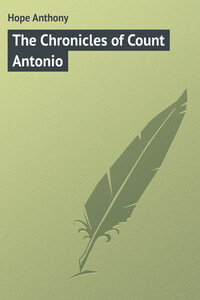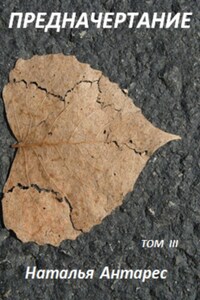Jack Rock stood in his shop in High Street. He was not very often to be seen there nowadays; he bred and bought, but he no longer killed, and rarely sold, in person. These latter and lesser functions he left to his deputy, Simpson, for he had gradually developed a bye-trade which took up much of his time, and was no less profitable than his ostensible business. He bought horses, "made" them into hunters, and sold them again. He was a rare judge and a fine rider, and his heart was in this line of work.
However to-day he was in his shop because the Christmas beef was on show. Here were splendid carcasses decked with blue rosettes, red rosettes, or cards of "Honourable Mention;" poor bodies sadly unconscious (as one may suppose all bodies are) of their posthumous glories. Jack Rock, a spruce spare little man with a thin red face and a get-up of the most "horsy" order, stood before them, expatiating to Simpson on their beauties. Simpson, who was as fat as his master was thin, and even redder in the face, chimed in; they were for all the world like a couple of critics hymning the praise of poets who have paid the debt of nature, but are decorated with the insignia of fame. Verily Jack Rock's shop in the days before Christmas might well seem an Abbey or a Pantheon of beasts.
"Beef for me on Christmas Day," said Jack. "None of your turkeys or geese, or such-like truck. Beef!" He pointed to a blue-rosetted carcass. "Look at him; just look at him! I've known him since he was calved. Cuts up well, doesn't he? I'll have a joint off him for my own table, Simpson."
"You couldn't do better, sir," said Simpson, just touching, careful not to bruise, the object of eulogy with his professional knife. A train of thought started suddenly in his brain. "Them vegetarians, sir!" he exclaimed. Was it wonder, or contempt, or such sheer horror as the devotee has for atheism? Or the depths of the first and the depths of the second poured into the depths of the third to make immeasurable profundity?
A loud burst of laughter came from the door of the shop. Nothing startled Jack Rock. He possessed in perfection a certain cheerful seriousness which often marks the amateurs of the horse. These men are accustomed to take chances, to encounter the unforeseen, to endure disappointment, to withstand the temptations of high success. Mens Aequa! Life, though a pleasant thing, is not a laughing matter. So Jack turned slowly and gravely round to see whence the irreverent interruption proceeded. But when he saw the intruder his face lit up, and he darted across the shop with outstretched hand. Simpson followed, hastily rubbing his right hand on the under side of his blue apron.
"Welcome, my lad, welcome home!" cried Jack, as he greeted with a hard squeeze a young man who stood in the doorway. "First-rate you look too. He's filled out, eh, Simpson?" He tapped the young man's chest appreciatively, and surveyed his broad and massive shoulders with almost professional admiration. "Canada's agreed with you, Andy. Have you just got here?"
"No; I got here two hours ago. You were out, so I left my bag and went for a walk round the old place. It seems funny to be in Meriton again."
"Come into the office. We must drink your health. You too, Simpson. Come along."
He led the way to a back room, where, amid more severe furniture and appliances, there stood a cask of beer. From this he filled three pint mugs, and Andy Hayes' health and safe return were duly honoured. Andy winked his eye.
"Them teetotallers!" he ejaculated, with a very fair imitation of Simpson, who acknowledged the effort with an answering wink as he drained his mug and then left the other two to themselves.
"Yes, I've been poking about everywhere – first up to have a look at the old house. Not much changed there – well, except that everything's changed by the dear old governor's not being there any more."
"Ah, it was a black Christmas that year – four years ago now. First, the old gentleman; then poor Nancy, a month later. She caught the fever nursin' him; she would do it, and I couldn't stop her. Did you go to the churchyard, Andy?"
"Yes, I went there." After a moment's grave pause his face brightened again. "And I went to the old school. Nobody there – it's holidays, of course – but how everything came back to me! There was my old seat, between Chinks and the Bird – you know? Wat Money, I mean, and young Tom Dove."
"Oh, they're both in the place still. Tom Dove's helpin' his father at the Lion, and Wat Money's articled to old Mr. Foulkes the lawyer."
"I sat down at my old desk, and, by Jove, I absolutely seemed to hear the old governor talking – talking about the Pentathlon. You've heard him talk about the Pentathlon? He was awfully keen on the Pentathlon; wanted to have it at the sports. I believe he thought I should win it."
"I don't exactly remember what it was, but you'd have had a good go for it, Andy."
"Leaping, running, wrestling, throwing the discus, hurling the spear – I think that's right. He was talking about it the very last day I sat at that desk – eight years ago! Yes, it's eight years since I went out to the war, and nearly five since I went to Canada. And I've never been back! Well, except for not seeing him and Nancy again, I'm glad of it. I've done better out there. There wasn't any opening here. I wasn't clever, and if I had been, there was no money to send me to Oxford, though the governor was always dreaming of that."














